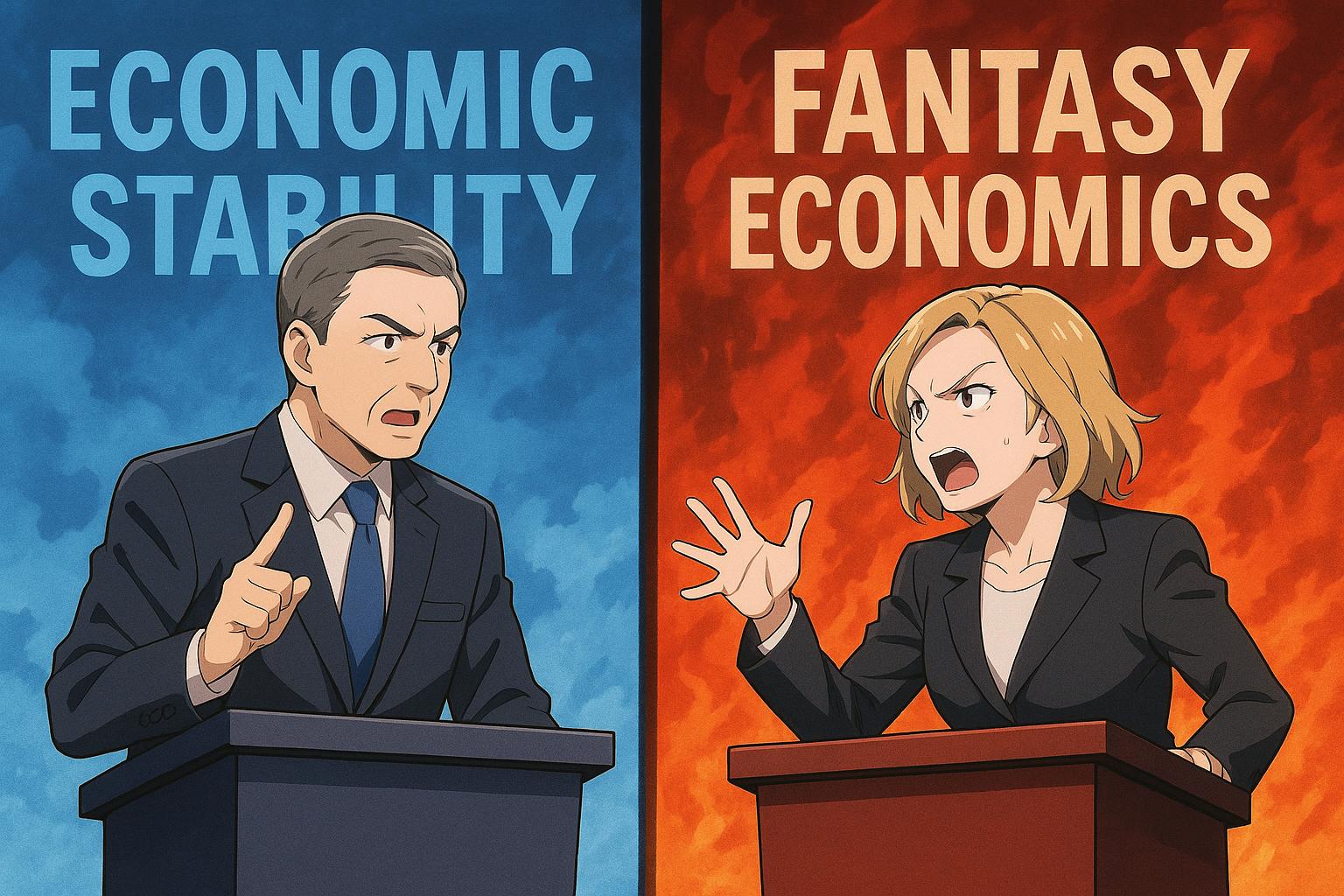Sir Keir Starmer has issued a stark warning regarding the economic proposals put forward by Nigel Farage and his party, Reform UK, suggesting they may result in a crisis akin to the one experienced during Liz Truss's brief tenure as Prime Minister. In a recent press conference, Starmer expressed deep concern over what he termed Farage’s “fantasy economics,” arguing that such unsubstantiated tax cuts could jeopardise the financial stability of ordinary British families.
Farage has touted plans to raise the personal income tax allowance to £20,000, abolish inheritance tax, and enhance welfare benefits, including revoking the two-child benefit cap. However, these ambitious measures have raised alarm within economic circles. The Institute for Fiscal Studies (IFS) has estimated that the overall cost of Farage’s proposals could exceed £100 billion annually. IFS deputy director Helen Miller noted that the projected fiscal impact of these policies would be significantly larger than the adjustments to welfare provisions that Farage highlighted in his speech. Critics argue that the party’s funding mechanisms, which include cutting various government expenditures, rely on questionable and outdated assumptions, leading many economists to view them as unrealistic.
Facing these challenges head-on during a recent visit to a manufacturing facility in the North West, Starmer claimed, "In opposition we said Liz Truss would crash the economy and leave you to pick the bill. We were right." He connected the current discourse to the aftermath of Truss's controversial mini-budget, which had spooked markets and triggered a rise in mortgage rates. The fallout from her regime highlighted how rapidly unfunded fiscal policies could spiral into broader economic disarray, which Starmer implies Farage's plans echo dangerously.
Indeed, Truss's short-lived government serves as a recent cautionary tale for both Labour and Conservative party members, reminding politicians of the potentially devastating consequences of fiscal recklessness. Starmer’s emphasis on stability stands in contrast to Farage’s promises, as he asserts that Labour's "Plan for Change" has begun to foster economic growth and stabilise the financial environment. He proudly noted that the country’s growth rate has surpassed that of any other G7 nation, alongside interest rate cuts benefitting millions of low-paid workers.
Farage's economic proposals represent a significant shift aimed at appealing to working-class voters, a demographic he believes has been neglected by both the Conservative and Labour establishments. His pledges include not only tax cuts but also proposals for state intervention, such as the nationalisation of key sectors and increased welfare support, thereby attempting to carve out a distinct political identity. However, this leftward pivot is laden with risks; there is widespread scepticism from financial experts about whether such sweeping reforms could genuinely be realised without engendering broader fiscal harms.
As debates over economic stewardship continue to intensify, Starmer's remarks serve as a clarion call for prudence in fiscal management. The lessons from Truss's era linger, cautioning all party leaders to navigate this intricate financial landscape with care. The economic recovery narratives of both Labour and its critics will shape the political discourse leading up to future elections, as voters remain acutely aware of the repercussions of past financial missteps.
Reference Map:
- Paragraph 1 – [1], [2], [3]
- Paragraph 2 – [2], [3]
- Paragraph 3 – [1], [4], [5]
- Paragraph 4 – [6], [7]
- Paragraph 5 – [3], [4]
Source: Noah Wire Services
